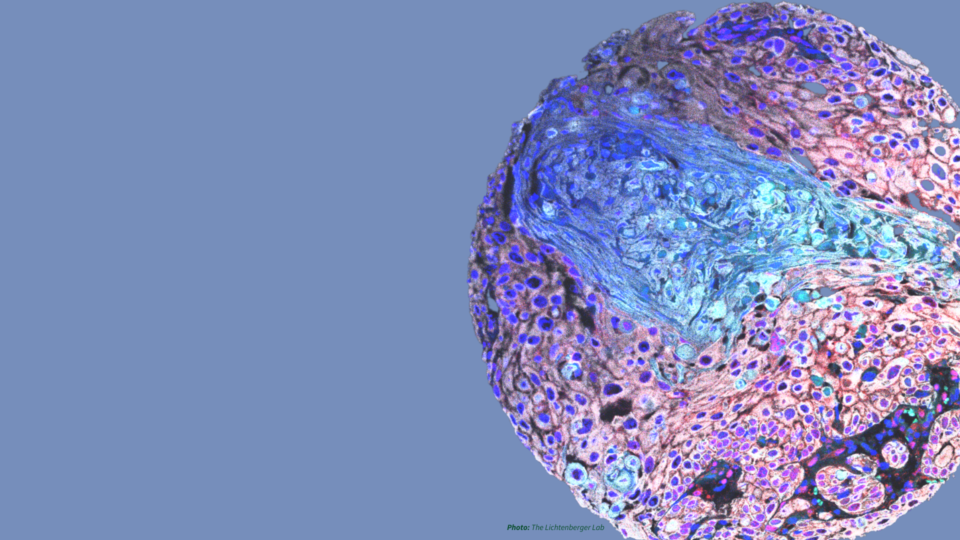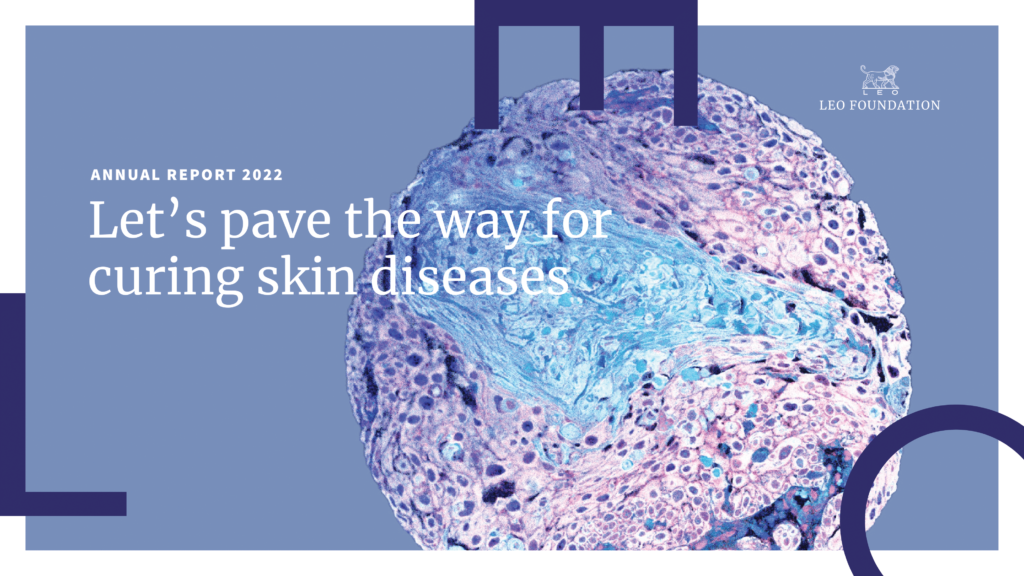20 March 2023
2022 was a year of transition across the activities of the LEO Foundation: the research we support, the company we own, the financial investments we make, and our cultural and historical endeavors. Adapting to a changing world and taking action to fulfill our commitment to improve the lives of people living with skin diseases were at the very core of the transition.
Our philanthropic activities continued the transition in line with our ambitious new grant strategy, which supports science to improve our understanding of the skin and its diseases; our financial investments evolved in line with macroeconomic and geopolitical changes; and transition efforts at LEO Pharma kept the company on track to deliver on its growth ambitions.
2022 highlights:
- With our philanthropic activities, we continued to support independent research to transform our understanding of the skin and its diseases. In 2022, we awarded a total of DKK 125 million across 36 grants focusing on very different aspects of the skin and its diseases. Learn more about the researchers and projects supported in the annual report.
- Our financial investments portfolio was not immune to pressures and challenges from an increasingly difficult macroeconomic and geopolitical environment and generated a negative return of DKK 1,626 million or -9%, with equities, credit, and government and mortgage bonds being detractors, while alternatives and overlay strategies contributed positively.
- As an engaged owner of LEO Pharma, we aim to provide the company with the best possible platform for long-term development and success. In 2022, our focus has been on supporting LEO Pharma in executing its growth strategy, advancing its pipeline and simplifying the organization.
- LEO Pharma’s financial results for 2022 were in line with guidance provided in the Annual Report 2021, driven by revenue growth and lower costs. Revenue grew 7% on the previous year. The adjusted EBITDA loss of DKK 1,253 million was an improvement of DKK 478 million on the previous year.
- Overall, the net result for the LEO Group in 2022 was a loss of DKK 5,253 million, reflecting both the significant changes and investments made to realize LEO Pharma’s strategic ambitions, and a difficult macroeconomic and geopolitical environment.
Looking ahead
As we begin 2023, and look back on what was achieved in 2022, the LEO Foundation and the LEO Group are making clear progress by taking further action to improve the lives of people living with skin diseases.
In early 2023, LEO Pharma took an important step toward profitability, announcing an adjustment to the R&D strategy to emphasize external innovation and partnerships. 2023 will be a milestone year for LEO Pharma, with a goal of delivering positive EBITDA as an important step in driving profitable and sustained growth toward 2025 and beyond. Where our philanthropic activities are concerned, new grant instruments are evolving and will be launched during 2023, as we expect to increase our grant giving compared to 2022. Regarding our financial investments, further additions of alternative components are expected to enhance returns and portfolio diversification, albeit at a slower pace, as the relative size of alternatives has grown more than anticipated in 2022. This year will also see the development of a dedicated strategy toward 2030 across the Foundation’s various activities.
At the LEO Foundation, we are looking forward to continuing to improve how we work as an owner, philanthropist and financial investor to deepen our impact and remain committed to improving the lives of people living with skin diseases. We are proud to join forces in that endeavor with all LEO Group colleagues and board members, our co-owner Nordic Capital, scientific committees and grantees around the world. It is your contributions and dedication that help pave the way for curing skin diseases.
The beauty of the skin. The top photo shows a section of a human cutaneous squamous cell carcinoma (SCC) biopsy from a tumor microarray. This beautiful “laboratory art” was created by the Lichtenberger Lab at the Medical University of Vienna, Austria. The lab is led by Dr Beate Lichtenberger, who was the winner of the LEO Foundation Award 2021 in Region EMEA.

